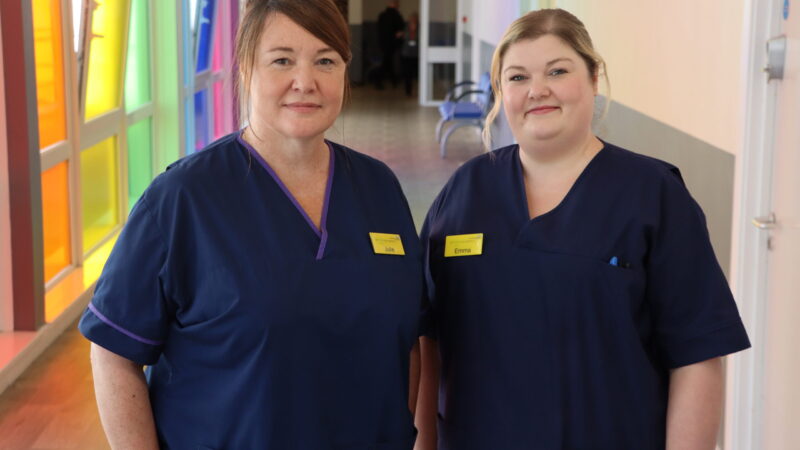
North Tees and Hartlepool NHS Foundation Trust has carried out training in care homes to reduce hospital admissions for older people with diabetes.
The Trust, in partnership with McKenzie Group Practice who identified the care homes and patients, is mid-way through a one-year pilot project to train staff in seven local care homes. The training raises the staff’s awareness of the impact low blood sugar (hypoglycaemia) can have on residents and lead to them being admitted to hospital.
Training
The improved training for care home staff, regular reviews by a specialist diabetes nurse and using new technology, has reduced diabetes-related admissions to hospital from 235 combined days in hospital last year to just four this year.
Lead diabetes specialist nurse Julie Sinclair said: “We raised awareness of diabetes related complications such as hypoglycaemia with care home staff by training them in continuous glucose monitoring, how to recognise various signs and symptoms and to provide simple, initial treatment to keep people safe.
“So far it has been a huge success and has made a big impact in reducing time spent in hospital.”
Fantastic
The training was delivered by diabetes nurse Emma Golby. Emma commented: “The care homes have been fantastic and really embraced the training. They have been partners from day one and have truly committed to delivering for their residents.”
Rachael Smith, manager of Queens Meadow care home which was part of the pilot, said: “Having the diabetes nurses reviewing the residents within the home has been useful to the staff as it has raised awareness of diabetes as a whole.
“Emma has delivered training to the staff on hypo events and this has grown their confidence in looking after diabetic patients.
“Having the nurses regularly review the residents has meant that we have been able to ask questions when we were unsure of something. This has reduced the amount of times our residents have been admitted to hospital with diabetes related incidents to zero.”
Reducing admissions
While reducing hospital admissions for the patients and improving their quality of life was the clear aim of the project, the team has noted other benefits.
Emma explained: “District nurse time has been saved due to proactive management of patients and regular reviews of treatment plans. This has freed up valuable time for the district nurses to attend to other patients, safe in the knowledge that the care homes in the study are being supported in the management of patients with diabetes.”
Julie added: “The improved patient safety and quality care for our care home residents was our priority but we have also saved on medicine costs, ambulances and bed capacity in hospital.”
The proposal was submitted to North East Commissioning services to fund the project for 12 months and is due to end in late September.